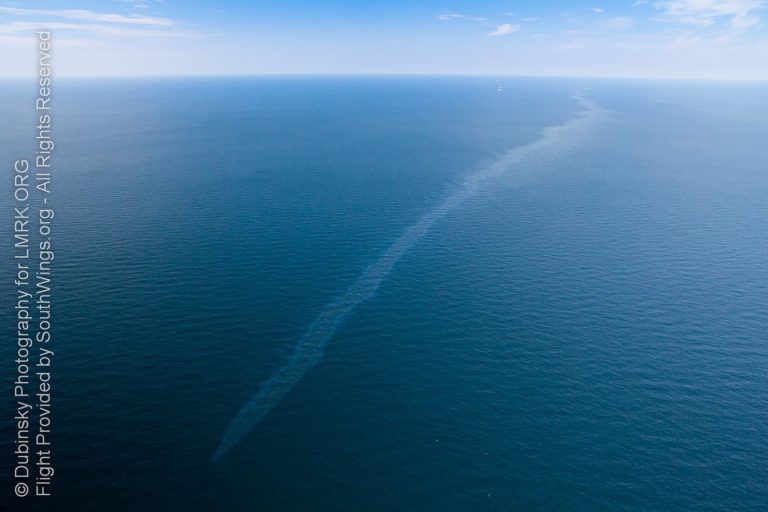Taylor Energy Public Forum Highlights Serious Risks of Offshore Oil Drilling
By: Waterkeeper Alliance

Taylor Energy argues that oil leak simply cannot be stopped
New York, NY and Baton Rouge, LA – January 21, 2016 – Yesterday, Taylor Energy held a public forum in Baton Rouge that was required through a settlement with Waterkeeper Alliance, Louisiana Environmental Action Network, and Apalachicola Riverkeeper. At the forum in Baton Rouge, Taylor Energy argued that nothing more can be done to stop the ongoing oil leak at its wells in the Gulf of Mexico.
Some members of the public that attended the event expressed frustration that the forum was not a fully a public meeting because Taylor Energy required everyone to register, did not allow recording, and refused to answer questions unless they were written down and vetted first.
“These frustrations highlight the abdication of responsibility by the federal government on this disaster,” said Larissa Liebmann, Staff Attorney for Waterkeeper Alliance. “For years, the government was all too willing to comply with Taylor Energy’s attempts to keep information secret from the public, and continues to fail to engage with the public in its response to this leak. We need a truly public meeting organized by the federal government that addresses the concerns of the public.”
At the forum, experts hired by Taylor Energy presented information on the efforts to stop the flow of oil into the Gulf of Mexico. Like the failed attempts of General Electric to convince regulators not to make GE remove their PCBs from the Hudson River, Taylor Energy presented studies to support their assertion that trying to remove more of the oil-contaminated sediment and intervene in the unplugged wells would cause more environmental harm than leaving the leak as is. According to Taylor, the surface sheen is coming entirely from remnants of oil left over in the sediment, and no new oil is coming out of the wells. However, the Department of Interior has estimated that oil will continue to leak from the site for over a century, and available data on the rate of release in recent years has not shown a decline in the amount of oil entering the Gulf of Mexico, with the oil sheen often extending over 20 miles.
Throughout the presentation, Taylor Energy repeatedly referred to the destruction of the man-made oil rigs as an “Act of God.” Marc Yaggi, Executive Director of Waterkeeper Alliance, reacted to this assertion: “‘Act of God’ is a legal term that generally refers to an unforeseen natural phenomenon that has effects that could not been foreseen or avoided. However, when Taylor Energy acquired some wells at this site and was permitted to drill more wells, both Taylor Energy and the Federal Government had access to a study that warned of the risk of destructive mudslides on the seabed during events such as hurricanes.” When asked about this study at the forum, Taylor Energy declined to comment, citing ongoing or potential litigation.
It remains to be seen how the federal government will respond to Taylor Energy’s argument that the best course of action going forward is to do nothing. Even though GE spent millions on an aggressive public relations and political campaign to convince government regulators not to make them clean up their PCBs from the Hudson River, regulators didn’t allow the company to walk away without cleaning up some of the water pollution they caused.
“Taylor Energy should not be allowed to walk away from this leak simply because they may have created a problem that is difficult and expensive to fix,” said Paul Orr, Louisiana Environmental Action Network’s Lower Mississippi Riverkeeper. “It raises serious questions because the Taylor wells were at approximately 480 feet deep, while those involved in the BP oil spill were at around 5,000 feet deep. If a company cannot completely stop the oil leaks that their man-made oil wells caused when they drilled through the sea floor to get to the oil at less than 500 feet, what will happen if there is this kind of disaster at 5,000 feet?”
Dan Tonsmeire, Apalachicola Riverkeeper reflected on his most important take-away from the assertions made by Taylor Energy: “It is not a question of whether there will be impacts from fossil fuel extraction. Rather, it always is a matter of determining just how bad the impacts will be. With oil spills, clean up is often determined to be worse than leaving the oil in place. Oil companies point to this in hopes that we will play along and allow them to keep up their risky practices and let them off the hook when things go wrong. It is time to call out the absurdity of this and just put an end to new permitting of offshore oil drilling altogether because we need to keep fossil fuels in the ground.”
Contacts: Tina Posterli, Waterkeeper Alliance, 516-526-9371, [email protected]